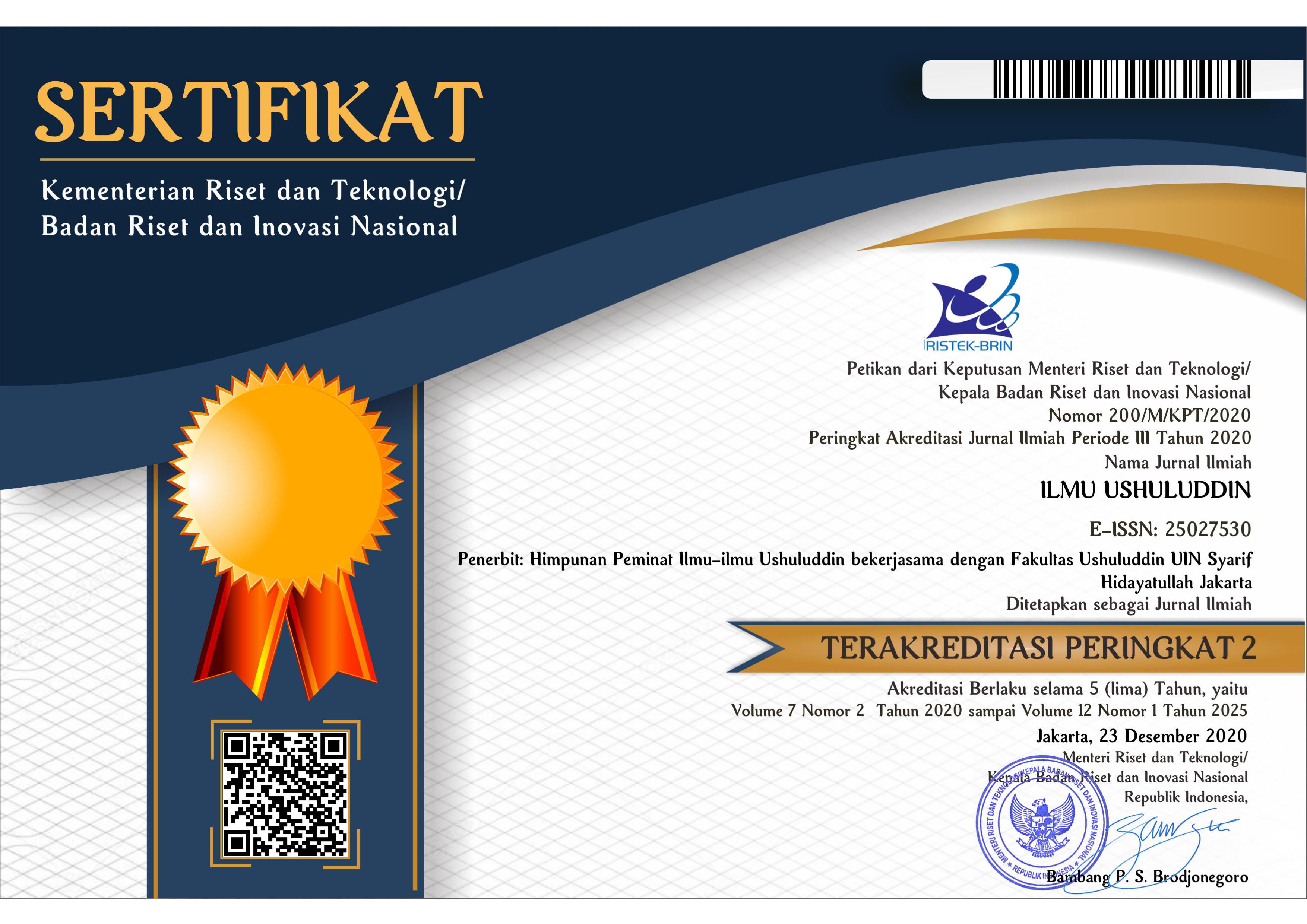RELIGION AND THE POLITICS OF NATIONALIST THOUGHT: COMPARATIVE ANALYSIS OF HINDU NATIONALISM IN INDIA AND MUSLIM NATIONALISM IN INDONESIA
DOI:
https://doi.org/10.15408/iu.v9i1.32065Keywords:
Religious nationalism, institution, Hindu in India, Islam in Indonesia.Abstract
The rise of religious nationalism in recent decades in developing countries has sparked attention among scholars. This article seeks to explore the political and cultural dynamics of the contemporary resurgence of religious nationalism, many of them reflected in Hindu nationalist in India and Muslim nationalist in Indonesia. We address the following question: What are the likely factors for religious-nationalist movements coming to the center stage of nation-state politics? Using the historical-institutional approach to religious politics, we argue that the forces that have driven the resurgence of religious nationalist were the interaction between the institutional design of the nation-state and the considerable opportunities for change – in a certain period of political crisis. Embedded in the issues of the institutional challenge is another series of questions that this article will address. There are variations in how and when religious-nationalist politics emerged. Why, for example, did the rise of religious politics occur in such varying ways, for instance, through a political party in India and civil society movements in Indonesia? Why did regimes or governments that promoted secular ideologies in India and Indonesia lose their hegemonic position? The answers to these questions are also largely historical-institutional. By focusing on how political institutions shape political dynamics, we suggest that institutions shape social and political outcomes, they necessarily affect people’s behavior as reflected in the politics of religious nationalism.
References
Andersen, Walter K. The Brotherhood in Saffron: The Rashtriya Shamyasevak Sangh and Hindu Revivalism. Boulder: Westview, 1987.
Aveling, Harry and Kingsbury, Damien (ed.), Autonomy and Disintegration in Indonesia. London and New York: Routledge-Curzon, 2003
Azra, Azyumardi. The Origins of Islamic Reformism in Southeast Asia: Networks of the Malay-Indonesian and Middle East Ulama in the Seventeenth and Eighteenth Centuries, Honolulu: Hawaii University Press, 2004.
Bailey, Greg. “Whither the BJP: A Political Movement or Just a Group of Revivalists.” South Asia: Journal of South Asia Studies vol. XVII (1994): 31-56.
Budiman, Arief. “Indonesia: Trials of President Wahid.” ISEAS: Journal of Southeast Asian Studies (2001): 131-145.
Davis, Richard H., Iconography of Rama’s Chariots, in David Luden, Contesting the Nation: Religion, Community and the Politics of Democracy in India. Philadelphia: the University of Pennsylvania Press, 1996.
Effendy, Bahtiar. “Islam and the State: The Transformation of Political Thought and Practice in Indonesia.” Ph.D. Dissertation, Columbus: Ohio State University, 1995.
Geertz, Clifford, The Religion of Java, Chicago: Chicago University Press, 1984.
Graham, Bruce D., Hindu Nationalism, and Indian Politics: The Origins and Development of the Bharatiya Jana Sangh, Cambridge: Cambridge University Press, 1990.
Hansen, Thomas B. The Saffron Wave: Democracy and Hindu Nationalism in Modern India. Princeton: University Press, 1999.
Hasan, Zoya. “Communal Mobilization and Changing Majorities in Uttar Pradesh,” in David Ludden, Contesting the Nation. Philadelphia: University Pennsylvania Press, 1996.
Hefner, Robert. Civil Islam. Princeton: University Press, 2000.
Jaffrelot, Christophe. The Hindu Nationalist Movements in India. New York: Columbia University Press, 1993.
Kohli, Atul. Democracy and Discontent: India’s Growing Crisis of Governability.Cambridge: University Press, 1991.
Ludden, David. Contesting the Nation: Religion, Community and the Politics of Democracy in India. Philadelphia: the University of Pennsylvania Press, 1996.
Liddle, R. William. Leadership and Culture in Indonesian Politics. Sydney: Ullen-Unwin, 1996.
Liddle, R. William. “Indonesia’s Democratic Past and Future.” Comparative Politics
, 4 (1992).
Liddle, R. William. “Suharto’s Indonesia: Personal Rule and Political Institutions.” Pacific Affairs 58, 1 (1985): 3-31.
Liddle, R. William, and Saiful Mujani. “The Triumph of Leadership: Explainingthe Indonesian Voter.” Paper Presented at the 2000 Annual Conference of the American Political Science Association, Washington, D. C.
Malik, Yogendra K., and V.B. Singh. Hindu Nationalists in India: The Rise of the Bharatiya Janata Party. Boulder: Westview, 1994.
Manor, James, “Anomie in Indian Politics: Origins and Potential Wider Impact”, in Economic and Political Weekly, Vol. 18, No. 19/21, 1983.
Meadwell, Hudson, “Forms of Cultural Mobilization in Quebec and Britany”, 1870-1914, in Comparative Politics, Vol. 15, No. 4, 1983.
Noer, Deliar, Modern Islamic Movements: 1900-1942, Monograph Series of Modern Indonesian Project, Ithaca: Cornell University, 1980.
Peacock, James, Purifying the Faith: Muhammadiyah Movement in Indonesian Islam, Ithaca: Cornell University Press, 1978.
Pierson, Paul. “Path Dependence, Increasing Return and the Study of Politics.” American Political Science Review 2 (1996).
Rosser, Andrew. The Politics of Economic Liberalization in Indonesia. London: Curzon Press, 2001.
Schiller, Edward, Indonesian Political Culture: Asking the Right Question, Athens: University of Ohio, 2001.
Kumar, Suranjit Saha, “Nationalism and the RSS,” in Arthur Bonner et al., Democracy in India, Washington D.C.: American University Press, 1994.
Schwarz, Adam. A Nation in Waiting: Indonesia’s Search for Stability. Boulder: Westview, 2001.
Sidle, John T., Pogroms, Jihad: Religious Violence in Indonesia, Ithaca, NY: Cornell University Press, 2006.
Steinmo, Sven and Kathleen Thelen. “Historical Institutionalism in Comparative Perspective.” in Steinmo et al. Structuring Politics, Historical Institutionalism in Comparative Analysis. Cambridge: University Press, 1992.
Sukma, Rizal. “Conflict Management In Post-authoritarian Indonesia.” in Damien Kingsbury, ed. Autonomy and Disintegration in Indonesia. London: Routledge- Cruzon, 2003.
Tambiah, Stanley. Leveling Crowds: Ethno-Nationalist Conflicts and Collective Violence in South Asia. Berkley: University of California, 1996.
Woodward, Mark and James Rush, eds. Intellectual Development in Indonesian Islam. Tempe: Arizona State University Press, 1995.


